What You Should Know About Failure to Yield Accidents

All drivers are required to obey the rules of the road. This includes yielding to other drivers, pedestrians, and bicyclists when they have the right of way. When a driver fails to yield, this can cause a crash.
Here’s what you should know about failure to yield accidents.

What Exactly is the Failure to Yield?
A failure to yield is a non-criminal traffic citation. Generally, these types of traffic tickets are issued when one driver’s failure to yield right-of-way causes a collision.
For example, if you are pulling out of a parking lot onto the road, any vehicles on that road have the right of way. If you fail to yield and cause an accident, you are liable for causing that accident. If you have the right-of-way and another driver fails to yield, they are liable for causing that accident.

When Should You Yield to Others?
Traffic laws vary in different states and cities; however, in general, drivers should yield the right of way in the following situations:
- At a yield sign
- To pedestrians in a crosswalk
- To vision-impaired pedestrians who are using a seeing-eye dog or a white cane
- When entering the road from a driveway or a parking space
- When turning left
- When at an intersection without traffic signs
- When there is an emergency vehicle with its lights and/or siren on
- When entering a freeway from an onramp
Consequences for Failing to Yield
Failing to yield to others when they have the right of way is a traffic violation that can be costly.
In Nevada, drivers are required to yield the right-of-way in certain specific situations:
- Approaching or entering an intersection (see NRS 484B.250) –
- Before making a left turn (see NRS 484B.253)
- Entering an intersection marked stop or yield (see NRS 484B.257)
- Entering a highway from private way (see NRS 484B.260)
- Entering or exiting controlled-access highways (see NRS 484B.263)
- On the approach or an authorized emergency vehicle or official vehicle of a regulatory agency (see NRS 484B.267)
- With bicycles, electric bicycles, and pedestrians (see NRS 484B.270)
These statutes provide very specific instructions on what to do in each situation. For example, NRS 484B.253 Vehicle turning left, states, “The driver of a vehicle within an intersection intending to turn to the left shall yield the right-of-way to any vehicle approaching from the opposite direction which is within the intersection or so close thereto as to constitute an immediate hazard, but such driver, having so yielded and having given a signal when and as required, may make such left turn and the drivers of all other vehicles approaching the intersection from the opposite direction shall yield the right-of-way to the vehicle making the left turn.”
Failure to abide by these laws is a misdemeanor. If you fail to yield in the City of Las Vegas, you are subject to a fine of $305.
If you’ve been convicted of a failure to yield violation, the Nevada DMV will add 4 Nevada demerit points to your license. Demerit points are added to your Nevada driver’s license every time you commit a moving violation. If you accumulate 12 or more points in one year, the Nevada DMV will suspend your license for 6 months (you may be allowed to resume driving to and from work or school on a restricted license after 3 months). You may be able to erase 3 demerit points from your license if you complete and accredited traffic school program. You are also entitled to a Nevada DMV hearing if you ever accrue 12 or more points and want to fight your suspension.
Some of the most frequent traffic violations and their associated demerit point values include:
- Reckless driving (NRS 484B.653) – 8 points
- Careless driving in Clark County (CCC 14.60.190)- 6 points
- Texting and driving (NRS 484B.165) – 4 points
- Following too closely/ tailgating (NRS 484B.127) – 4 points
- Failure to yield the right-of-way (NRS 484B.253) – 4 points
- Passing a school bus when signals are flashing (NRS 484B.353) – 4 points
- Failure to yield to a pedestrian (NRS 484B.283) – 4 points
- Disobeying a traffic signal or stop sign (NRS 484B.100) – 4 points
- Running a red light (NRS 484B.307) – 4 points
- Running a stop sign (NRS 484B.257) – 4 points
- Making an improper turn (NRS 484B.400) – 4 points
- Unsafe passing (NRS 484B.203) – 4 points
- Passing on the right (NRS 484B.207) – 4 points
- Turning right on red (NRS 484B.300) – 4 points
- Driving through a safety zone (NRS 484B.110) – 4 point
- Failing to yield to traffic incidents (NRS 484B.607) – 4 points
- Failing to yield to tow trucks (NRS 484B.607) – 4 points
- Failing to yield to bicyclists (NRS 484B.270) – 4 points
- Unsafe turning onto roadway (NRS 484B.260) – 4 points
For a complete list of all traffic violations that result in demerit points against your Nevada driver’s license, see the list posted on the Nevada DMV Website.


Damages in a Failure to Yield Accident
Failure to yield accidents can be expensive. If you or a loved one has been in a failure to yield accident, these are some of the types of damages that you might be able to recover:
- Medical expenses (including ambulance bills, hospital bills, emergency room doctor bills, MRIs, X-rays, other diagnostic tests, surgery, medication, ongoing physical therapy care, in-home care)
- Lost income or wages
- Loss of future earning capacity
- Pain and suffering (including physical pain, emotional distress, and physical disfigurement and scarring)
- Cost of future medical care
- Costs of vehicle repair or replacement
- Rental car costs
- Loss of consortium
- Wrongful death
For more information about what these types of damages involve, see our article: What Types of Damages Can I Get After a Car Accident?
How a Personal Injury Lawyer Can Help
When a failure to yield accident occurs, it’s important to speak to a personal injury lawyer who has experience dealing with failure to yield accidents.
Many times, the other party (or their lawyer or insurance company) will try to deny fault. Don’t let them get away with blaming you.
An experienced Henderson car accident lawyer will be able to help guide you through the legal process, help obtain evidence that supports your version of the events that occurred leading up to the accident, and retain any necessary expert witnesses to help you prove what really happened.
Experienced Las Vegas Personal Injury Attorneys
If you or a loved one has been injured in a failure to yield accident, you should speak with an experienced personal injury attorney who can help you protect your rights and advise you if you have a valid personal injury claim. Our personal injury lawyers are experienced at handling all types of motor vehicle accident cases, including car accidents, truck accidents, motorcycle accidents, bus accidents, and accidents involving pedestrians and bicyclists.
If you are looking for a law firm with experienced car accident attorneys, contact Anthem Injury Lawyers today for a free case evaluation. Anything that you discuss with us will be protected by the attorney-client relationship. Our phone number is (702) 857-6000. We offer Free Consultations. Our law office is located in Henderson, but we work with clients all over the Las Vegas Valley.





